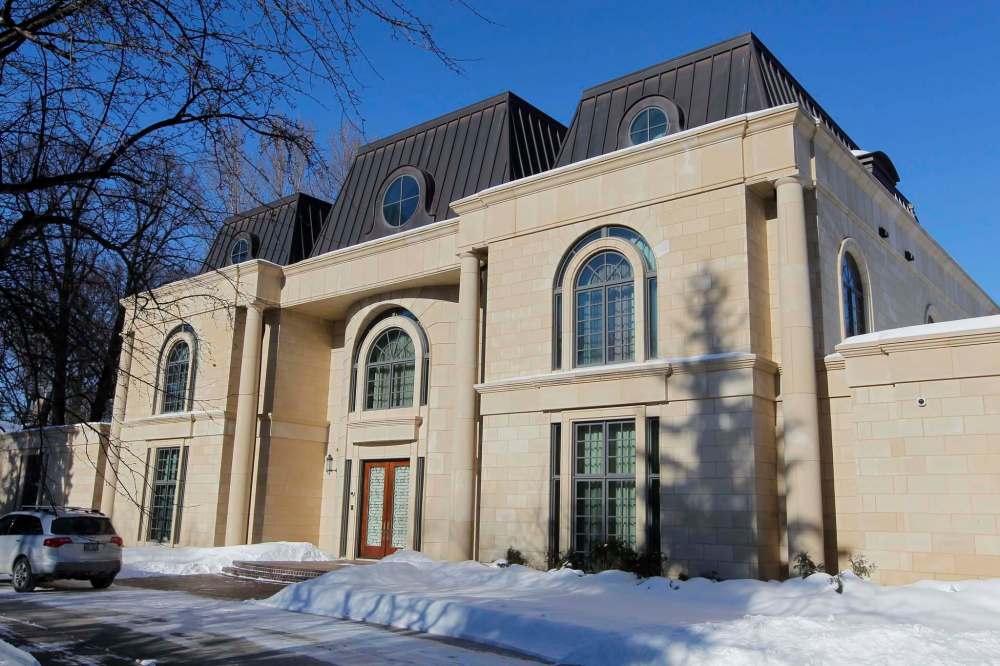Manitobans’ net worth rising fastest
Posts strongest growth in country from 2012 to 2016
Advertisement
Read this article for free:
or
Already have an account? Log in here »
To continue reading, please subscribe:
Monthly Digital Subscription
$1 per week for 24 weeks*
- Enjoy unlimited reading on winnipegfreepress.com
- Read the E-Edition, our digital replica newspaper
- Access News Break, our award-winning app
- Play interactive puzzles
*Billed as $4.00 plus GST every four weeks. After 24 weeks, price increases to the regular rate of $19.95 plus GST every four weeks. Offer available to new and qualified returning subscribers only. Cancel any time.
Monthly Digital Subscription
$4.99/week*
- Enjoy unlimited reading on winnipegfreepress.com
- Read the E-Edition, our digital replica newspaper
- Access News Break, our award-winning app
- Play interactive puzzles
*Billed as $19.95 plus GST every four weeks. Cancel any time.
To continue reading, please subscribe:
Add Free Press access to your Brandon Sun subscription for only an additional
$1 for the first 4 weeks*
*Your next subscription payment will increase by $1.00 and you will be charged $16.99 plus GST for four weeks. After four weeks, your payment will increase to $23.99 plus GST every four weeks.
Read unlimited articles for free today:
or
Already have an account? Log in here »
Hey there, time traveller!
This article was published 07/12/2017 (3000 days ago), so information in it may no longer be current.
Statistics Canada says the median net worth of Manitobans rose more from 2012 to 2016 than anywhere else in the country — and significantly more than many other provinces.
The median net worth of families and unattached individuals in Manitoba — at which half the population had higher net worth and half had lower — was up 35.2 per cent between 2012 and 2016 from $237,200 to $320,800.
It’s a significant number that surprised even the folks at Statistics Canada.

At least two economists in Manitoba believed it had something to do with the stable growth in real estate values especially in Winnipeg, along with the relatively lower debt level.
Nationally, the median net worth of Canadian families totalled $295,100 in 2016, up 14.7 per cent from 2012, the last time the survey was conducted.
Housing was both the largest asset and the largest debt for Canadians.
But John Nicoletta, the head of the income pension and wealth section of Statistics Canada, noted that in Manitoba while the principal residence portion of the median net worth increased by close to 10 per cent over that four-year period — $256,400 to $280,000 — the median net worth attributed to the category referred to as “other real estate” was up almost 75 per cent, from $105,5500 to $185,000.
That category includes cottages, summer homes and vacant lots.
Nicoletta said the increase in net worth attributed to private pension assets also went up 47 per cent in Manitoba, which helped drive the provincial median up so high.
He said the net worth attributed to those assets increased in other provinces, but not to the extent it did in Manitoba.
One of the reasons for that increase in “other real estate” may be because the debt load on the totality of properties whose values have increased have not gone up nearly as much.
“Keep in mind there is mortgages on that other real estate,” Nicoletta said. “The median on the debt, the mortgages on that other real estate, went from $126,600 to $135,000. The cottages are worth a lot more, but the mortgages being carried did go up as much.”
Fletcher Baragar, associate head of the economics department of the University of Manitoba, said the significant increase is likely partially a result of the Manitoba economy that “keeps chugging along.”
“General indebtedness in Manitoba was relatively modest compared to the other provinces and the downturn in 2008-09 was really mild in Manitoba, which probably contributed to these results,” he said.
Phil Cyrenne, an economist at the University of Winnipeg, said house prices went up much more dramatically in places like Toronto and Vancouver. But the increasing debt loads there also skyrocketed, making it a wash when it comes to provincial median levels for net worth.
But Cyrenne cautioned that with a median figure, which would normally be a bell-shaped curve, it depends on how the net worth is distributed among the population.
“How far off does it drop from the median in Manitoba,” Cyrenne asked.
“I suspect it drops off quite quickly from that median. There is a lot of poverty in Manitoba.”
But Nicoletta noted median net worth might be a better representation than average net worth.
“It is all weighted to represent the Canadian or the Manitoba family,” he said.
“We would draw the midpoint — $320,800 — and half are below and half are above.”
By comparison, the average net worth of Manitoba families went up from $499,000 to $585,000
The total value of assets held by Canadians in 2016 was $12 trillion, up from $9.9 trillion in 2012. The median value of total assets owned by families amounted to $440,200, up from $391,700 in 2012.
Meanwhile, total debt reached $1.76 trillion in 2016, up from $1.41 trillion in 2012.
The median value of total debt owed by families was $80,600 in 2016, up from $63,400 in 2012.
The report also found that 29.6 per cent of Canadian families were debt-free in 2016.
Statistics Canada says the share was highest among senior-led families, with 58 per cent debt-free.
martin.cash@freepress.mb.ca

